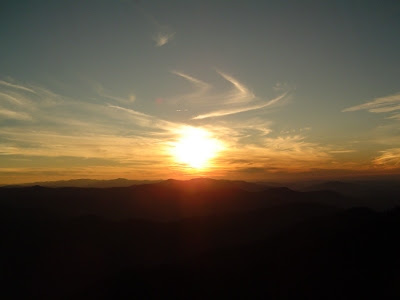 Bill Ramsey's new haiku book, More Wine, is now available from Red Moon Press. Warning: this book may be hazardous to postmodern angst. Its back cover states: "Haiku long has relished the quietistic impulse. Ecstatic verse has favored dramatic exuberance. These two traditions are stirred into a global mix in More Wine. Wine, an old symbol of human thirst for an intimate Beloved, here pours through yearnings of our postmodern sensibility."
Bill Ramsey's new haiku book, More Wine, is now available from Red Moon Press. Warning: this book may be hazardous to postmodern angst. Its back cover states: "Haiku long has relished the quietistic impulse. Ecstatic verse has favored dramatic exuberance. These two traditions are stirred into a global mix in More Wine. Wine, an old symbol of human thirst for an intimate Beloved, here pours through yearnings of our postmodern sensibility."Bill's first book of haiku was This Wine (Deep North Press, 2002). His selected haibun appeared as Ascend with Care (LeapPress, 2003). Other verse has appeared in Chiron Review, Christian Century, Commonweal, Exquisite Corpse, South Carolina Review, Southern Review, and others.
1) Why do you write haiku?
I write to pay attention to the internal self, to sustain an integrated life, and to record my 8 inches of snail’s progress toward the Divine.
2) What other poetic forms do you enjoy?
I've heard of the deep spiritual profundity to be found in limericks; however, I have not yet found it there. So I read Rumi, Hafiz, Rabia, and Kabir.
3) Of the many wonderful haiku you've written, what do you consider to be your top three?
the dead boy
on a Rwandan road
as i eat shrimp
born to live i hoe
and, ah, born to die
i kiss the melon
the light turning green
against a vast night--
my turn to go
If you've been enjoying this weekly series and have not contributed, please consider sharing your response (whether it be for haiku or tanka) to the three little questions that Bill answered. You must be a published poet to participate.








